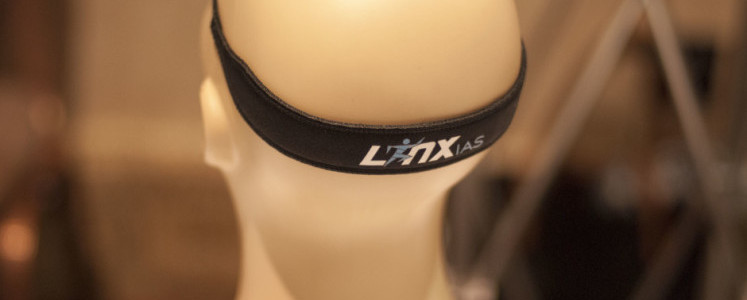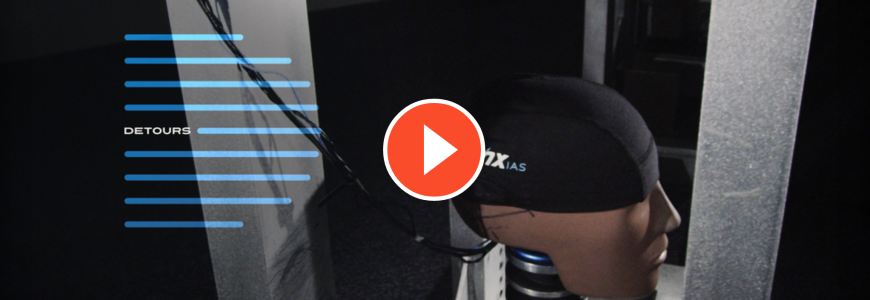By C.C. Weiss
Concussions – or at least concussion discussions – are all the rage lately, particularly in relation to professional sports leagues like the NFL. BlackBox Biometrics is adding to the discussion with a small, lightweight sensor designed to track concussive forces. Derived from the company’s military blast force sensor, the consumer-grade Linx IAS straps to the head via a beanie or headband and measures impacts, providing an easy-read analysis that can help athletes identify concussions.
BlackBox debuted the Linx IAS at CES 2015, where it won Innovation Awards in the Fitness, Sports and Biotech; Tech for a Better World; and Wearable Technologies categories. The wearable, which weighs about the same as a nickel and looks like a thin, flat USB drive, uses an integrated three-axis accelerometer and three-axis gyroscope to measure forces on the head. By sliding it into the accompanying skull cap or headband, the athlete can wear it under a helmet or on its own, in warm or cold weather. BlackBox imagines it being used for team sports like football and hockey, as well as individual sports like snowboarding, bicycling and skateboarding.
The Linx IAS sends data wirelessly via Bluetooth Smart to the accompanying Android/iOS app, where the athlete or team manager can analyze it. It sends an alert immediately after a concussion-level impact occurs, so a coach, parent or trainer can check the athlete out right then and there – the app even includes a “cognitive and concussion symptoms test”. For the athlete, the unit has a color-coded LED alert system that allows him or her to check immediately to see if the hit was low impact (green), moderate (yellow) or severe (red).
The company is careful to stress the Linx IAS device and app do not actually diagnose a concussion – you’ll need physician for that. The IAS merely gives the athlete a better tool for analyzing risk and identifying when it’s time to get checked by the doc.
Up to 128 Linx units can be paired to a single mobile device, allowing a coach, team doctor, parent or other group leader to monitor multiple units from a single device. The app also pushes data to the cloud where it can be shared with multiple users and accessed via a Web app and a PC utility.
The Linx IAS is a lighter, consumer-ready design based on BlackBox’s military-spec Blast Gauge. The company started in 2011 with the goal of measuring the unseen blast forces that were leading to hundreds of thousands of traumatic brain injuries among US troops. The Blast Gauge uses a total of three sensor units – one on the helmet, one on the chest and one over the non-firing shoulder – to provide all-around blast tracking and analysis. BlackBox has supplied Blast Gauges to US and international military forces, as well as law enforcement agencies.
In moving its technology to the consumer sports market, BlackBox cites a 2013 Institute of Medicine report that found that up to 3.8 million people per year are affected by a sports- or recreation-related brain injury. It also notes a 2011 Centers for Disease Control and Prevention study that found that the number of Americans younger than 19 treated for sports concussions increased from 150,000 to 250,000 a year between 2001 and 2009.
The waterproof Linx IAS will be available by the end of the first quarter of 2015, starting at US$200. It will come packaged with a cordless AC adapter and your choice of skull cap or headband. The integrated battery will provide up to 14 hours on a single charge and it will charge via the built-in USB, or an electrical outlet with the AC adapter.
BlackBox Biometrics Linx IAS | Gizmag.com



